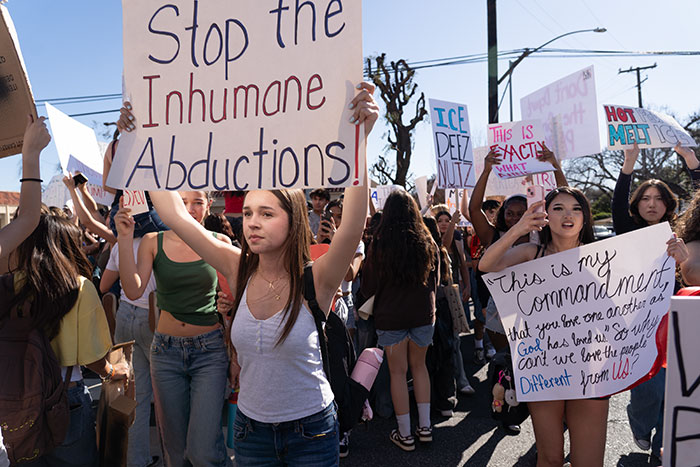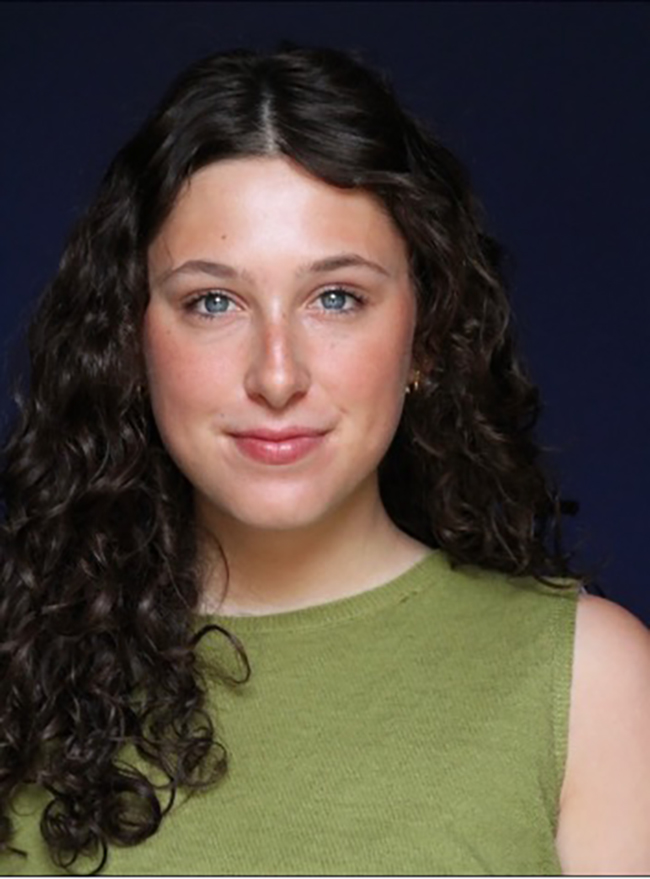Riley’s Farm saga continues for CUSD
by Mick Rhodes | mickrhodes@claremont-courier.com
Though a three-judge U.S. appeals court panel ruled March 17 that Riley’s Farm co-owner Jim Riley may not recover alleged monetary damages from Claremont Unified School District, it wasn’t all good news for CUSD.
The panel ruled the district may not be held financially liable for alleged damages, but the opinion also leaves open the possibility that Riley could prevail in future rulings regarding the constitutionality of the school district’s decision to no longer take students on field trips to Riley’s Farm.
Riley’s lawsuit, which was dismissed July 17, 2020 by US District Judge Jesus G. Bernal, had sought $11 million in damages from CUSD. It alleged Mr. Riley’s First Amendment free speech rights were violated when the district canceled field trips to his Oak Glen farm in 2018 after local parents objected to several 2018 social media posts they say were offensive, misogynistic and advocated white supremacy.
Riley claimed CUSD retaliated against him because he engaged in protected speech on his Twitter account.
“In partially affirming the district court’s summary judgment in favor of the School defendants, the panel held that although there was a genuine issue of material fact on the issue of whether the Riley plaintiffs’ First Amendment rights had been violated, the individual School defendants were entitled to qualified immunity as to the damages claims because the right at issue was not clearly established when the conduct took place,” read a portion of the summary of the Ninth Circuit U.S. Court of Appeals’ 39-page opinion.
In a March 18 post on its website, Riley wrote “… the court clearly affirmed that public agencies cannot engage in First Amendment retaliation, indicating there was strong prima facie evidence that Claremont Unified School District did precisely that.”
If it prevails at the district court level, CUSD could be compelled to pay Riley’s legal bills, which have thus far involved four law firms and cost more than $1 million, according to Riley’s legal team.
Asked to comment, outgoing CUSD Superintendent Jeff Wilson said, “On advice of counsel, I am not able to comment on this matter at this time because the litigation is ongoing.”
The panel, made up of circuit judges Sandra S. Ikuta, Mark J. Bennett and Ryan D. Nelson, wrote in summary:
“In reaching this conclusion, the panel first determined that the relationship between the Riley plaintiffs and the School District was analogous to those between the government and a government contractor and that the character of the services provided by the Riley plaintiffs justified the application of the framework established in Pickering v. Bd. of Ed. of Twp. High Sch. Dist. 205, 391 U.S. 563, 568 (1968). Applying the two-step burden-shifting approach for government contractors alleging retaliation, the panel held that the plaintiffs had established a prima facie case of retaliation against the School defendants that could survive summary judgment. The panel held that there was no dispute that Riley engaged in expressive conduct, that some of the School defendants took an adverse action against Riley’s Farm that caused it to lose a valuable government benefit and that those defendants were motivated to cancel the business relationship because of Riley’s expressive conduct. The panel also held that there was sufficient evidence that the Board members had the requisite mental state to be liable for damages for the ongoing constitutional violation.
“Because the Riley plaintiffs had carried their burden of making a prima facie case of retaliation, the burden shifted to the School defendants. The panel held that taking the evidence in the light most favorable to the Riley plaintiffs, the School defendants failed to establish that the School District’s asserted interests in preventing disruption to their operations and curricular design because of parental complaints were so substantial that they outweighed Riley’s free speech interests as a matter of law.”
The panel rejected CUSD’s argument that it could not be held liable for unconstitutional retaliation because their actions were protected government speech.
“Even assuming that the selection of a field trip venue was protected government speech, the pedagogical concerns underlying the government-speech doctrine did not exist here because Riley was not speaking for, or on behalf of, the School District,” read the judges’ summary.
“The panel held that although there existed a genuine issue of material fact as to whether the School defendants violated the Riley plaintiffs’ First Amendment rights, there was no case directly on point that would have clearly established that the School defendants’ reaction to parental complaints and media attention arising from Riley’s tweets was unconstitutional. The School defendants were therefore entitled to qualified immunity on the damages claim.
“The panel held that the district court erred in dismissing the claims for injunctive relief which sought to enjoin the School District’s alleged ongoing policy barring future field trips to Riley’s Farm. The panel held that the testimony of the School District’s superintendent was sufficient to create a genuine issue of material fact as to whether the Riley plaintiffs continue to suffer from an ongoing constitutional violation.”







0 Comments